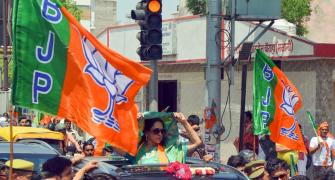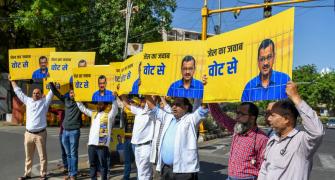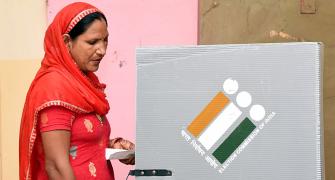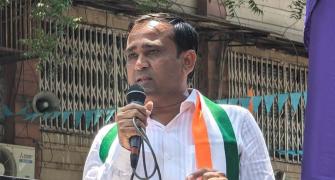Nearly half of all Pakistanis suspect that government agencies and politicians allied to the administration were responsible for the assassination of former premier Benazir Bhutto, according to a survey released on Saturday.
Fifty-three per cent of respondents in the poll conducted by Gallup Pakistan also said Bhutto's Pakistan People's Party had made the right decision by choosing her 19-year-old son Bilawal Bhutto Zardari as its new chairman.
Asked who had killed Bhutto, 23 per cent said they suspected government agencies while another 25 per cent said they suspected politicians allied to the government.
Al Qaeda or the Taliban were suspected by 17 per cent, while 16 per cent suspected other external forces, principally the United States (12 per cent) and India (4 per cent).
In response to a question about involving foreign investigators to probe the assassination, 46 per cent said it would be right while 30 per cent said it would be wrong. Another 24 per cent said they did not know.
Bhutto assassination: Musharraf denies involvement
Gallup said the poll was carried out in two rounds. The first round was conducted shortly after Bhutto's assassination from December 30-31. The second round was carried out from January 6-8. The survey covered over 1,300 men and women in all four provinces of Pakistan and had a margin of error of plus or minus five percentage points.
Former premier Nawaz Sharif was given the highest rating of 62 per cent in a question about the handling of the assassination by political leaders.
Jamaat-e-Islami leader Qazi Hussain Ahmad was at the second place at 28 per cent, followed by president Pervez Musharraf in third at 24 per cent.
Gallup also said the grief at Bhutto's assassination was 'almost universal' in Pakistan and was 'observed across provincial and linguistic boundaries as well as political and socio-economic divides'.
'This expression of unity, which remained elusive during her life and times, was a big gain for Pakistan,' it said.







